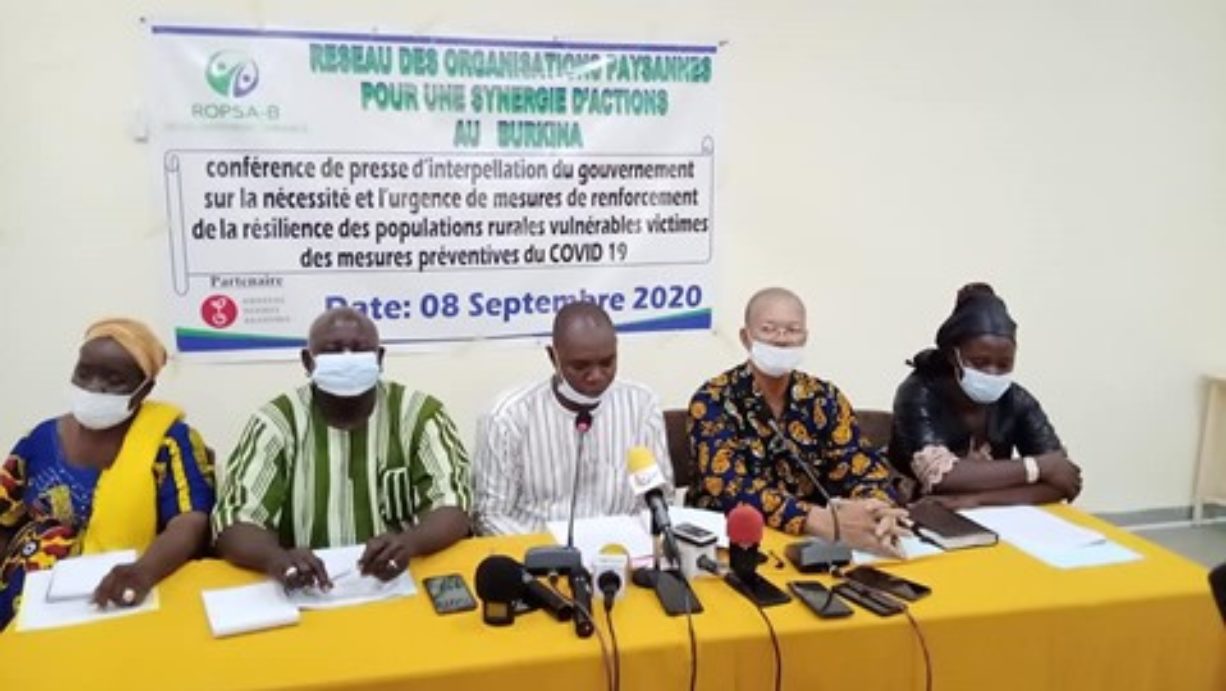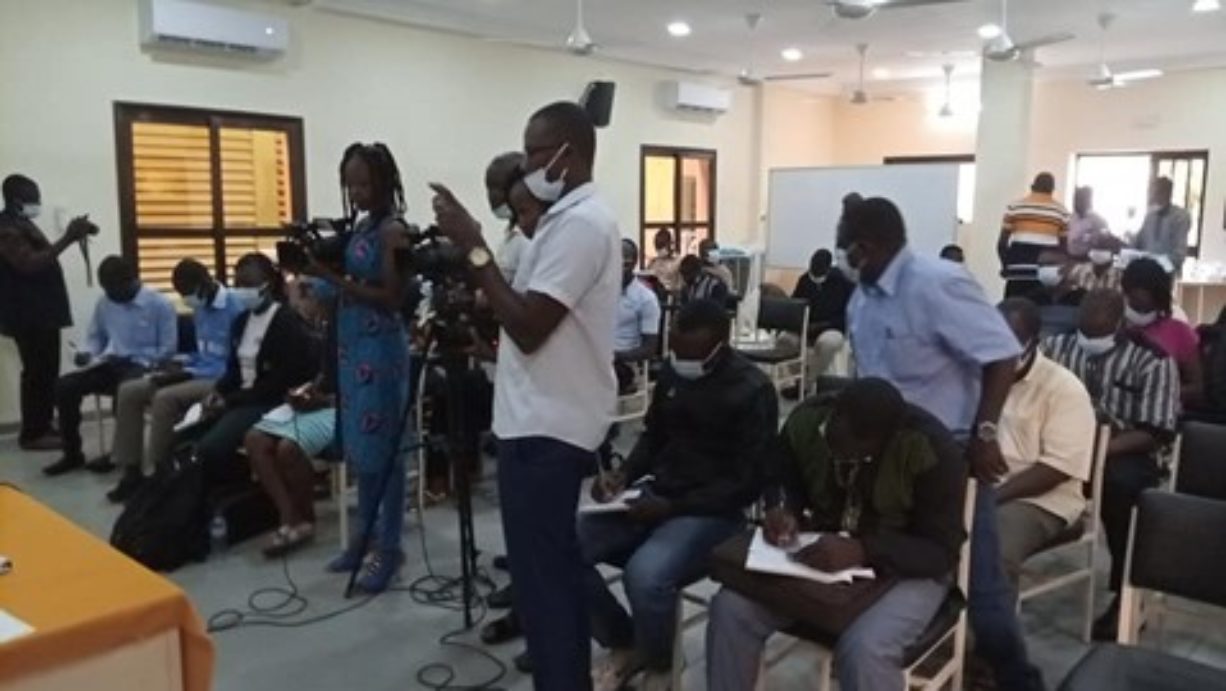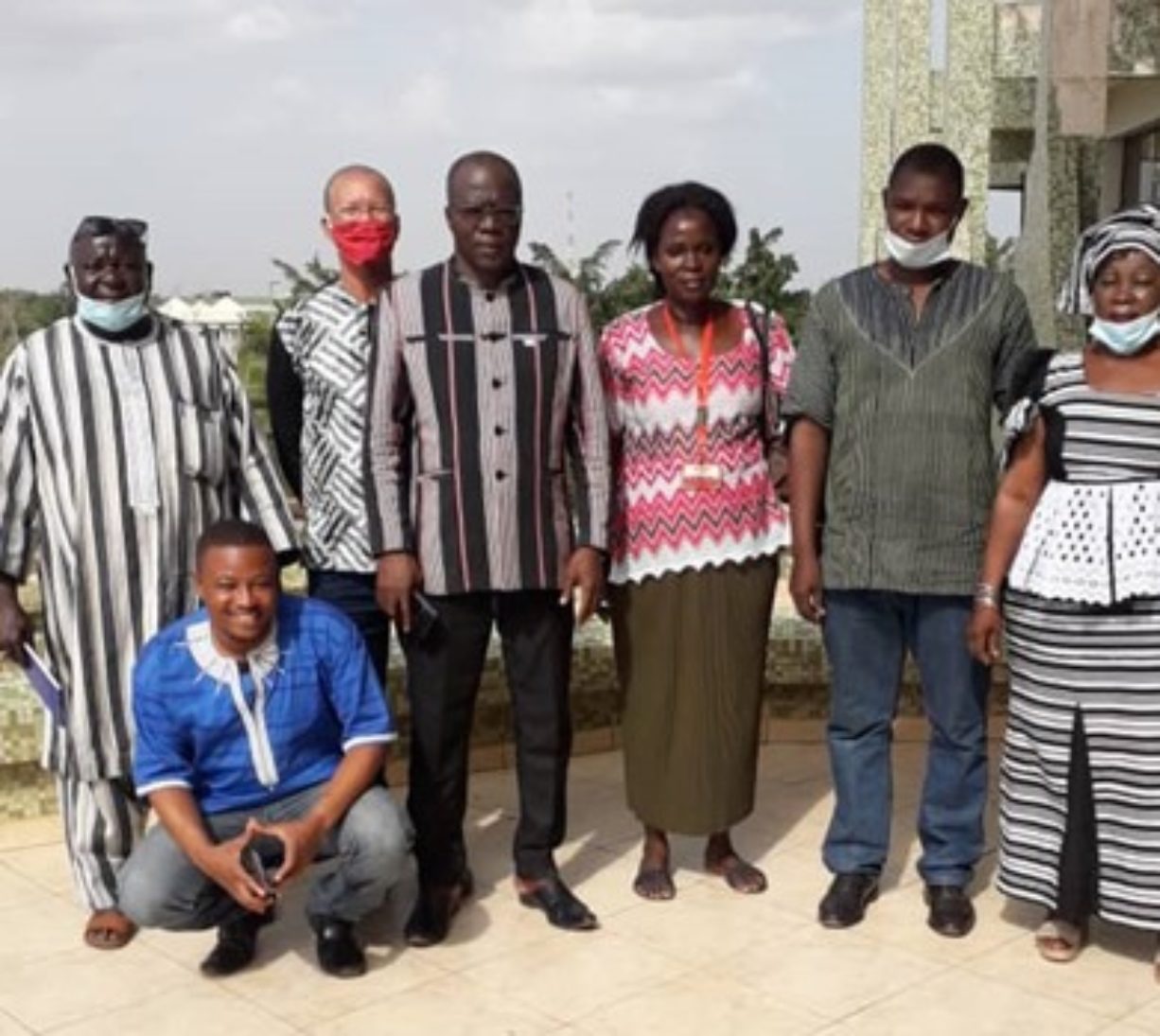Corona crisis: A test for African farmers’ organisations
An article by Fatma Bouchareb and Jan Pusdrowski
An article by Fatma Bouchareb and Jan Pusdrowski

The global pandemic has led to lockdowns and restrictions on economic and public life in many African countries too. In Kenya, the government had imposed measures to contain the virus, including a curfew between 9 p.m. and 4 a.m. that has remained in place until today. External borders were also closed, but international air travel is now possible once again provided that travellers can show a negative PCR test upon entry.
The aftermath of the corona crisis is difficult to assess. What is clear, however, is that restrictions have had a direct impact on market activity and therefore also on agriculture.
KENAFF and COVID-19
The Kenya National Farmers’ Federation (KENAFF) is the umbrella organisation for farmers in Kenya. KENAFF’s mandate is to represent, articulate, protect and promote the interests of farmers and to offer services relevant to its members.
KENAFF achieves this through lobbying (L&A) and interest representation, political initiatives and capacity building. Over the past six years, the KENAFF has faced internal and external challenges that have limited its ability to represent its members and provide them with services. With the support of international partners, the KENAFF has made some remarkable progress over the last 2-3 years. The Andreas Hermes Akademie (AHA) has been accompanying the KENAFF for many years now.
SARS-CoV-2 has slowed down KENAFF’s plans and efforts for 2020 – resulting in the first elections in five years having to be paused – and the newly gained momentum threatened to wane. However, KENAFF was able to continue its work in the area of L&A via radio, television and newspapers and has also implemented a USSD system. USSD (Unstructured Supplementary Service Data) systems are service and control commands in the mobile phone network. USSD codes work similarly with any mobile phone and access to KENAFF’s USSD system can be achieved with the simplest of phones – as is usual with USSD. KENAFF uses the system to disseminate information on SARS-CoV-2, agriculture, the weather and market data. The system has become a success.

USSD system for farmers in Kenya
By developing and implementing a special USSD code, KENAFF is now able to reach its members and farmers, because the system is open to everyone.
For the system, KENAFF signed several memoranda of understanding with various stakeholders to enable use of data from third parties, e.g. Safaricom PLC for the provision of services, Kenya Agricultural Observatory Platform (KAOP) for the exchange of meteorological data down to district level, Kenya Agricultural and Livestock Research Organisation (KALRO) for research results and information to exchange with farmers and the Agriculture Information Resource Centre of the Ministry of Agriculture, Livestock, Fisheries and Co-operatives for technical information.
The system can henceforth be reached via USSD code *501# in the Safaricom network. This platform is an important tool for the KENAFF because the latter can also send push messages directly to all registered users. The platform itself is increasing the attractiveness of KENAFF among its members and among farmers who are not yet members. It is expected that, in about two to three years, KENAFF will have recouped its investment, addressing both traders in agricultural inputs and providers of services for the agricultural sector, who clearly want to use this platform’s data source.
The specific objective was to create and manage a national USSD code for communication with farmers on a wide range of topics including COVID-19 containment and management, farmer support services, technical advisory services, and market information and intelligence.
By 21.10.2020, a total of 21,453 farmers had registered. In the USSD system, farmers are allocated different value chains. When registering, they were asked to indicate their prioritised value chain so that they have better access to information on the one hand and so that KENAFF can also use this categorisation to distribute information top-down to all users (or specific user groups).
| No. | Value Chain(VC) | Registered farmers |
| 1 | Dairy farmers | 7316 |
| 2 | Poultry farmers | 3787 |
| 3 | Beans | 1739 |
| 4 | Maize | 1420 |
| 5 | Goat farmers | 1301 |
KENAFF’s USSD platform offers a total of 50 value chains to choose from. These include the value chains identified by the counties as priority value chains in the Agricultural Sector Transformation and Growth Strategy (ASTGS, 2019-2029), as well as value chains that are not listed in the document.
Small-scale agriculture worldwide, but especially in Africa, is under enormous pressure. The lack of reliable strategies to promote agriculture in Burkina Faso is exacerbating the problem, as there is no social security system for agricultural producers and no insurance services for agricultural professions. Border closures and lockdowns have severely restricted market activity. Many producers have already lost everything due to the economic downturn, as they no longer have the capital to reinvest; they have been forced to abandon their businesses and many managers and their employees have become unemployed. All this acutely endangers achievement of the SDG2 objectives and, in many cases, there is a real threat of relapsing into subsistence farming.
The national umbrella organisation Réseau des Organisations Paysannes pour une Synergie d’Actions au Burkina Faso (ROPSA) has reacted to the Corona crisis by making concrete demands on the government. So far, the government has taken measures to support traders by distributing food (rice, maize, sorghum and oil) and approving a budget of 5 billion XOF to support traders in the informal sector. Negotiations have also been conducted with banks on loan repayment and deferring outstanding loans has been made possible.
Farmers need support
ROPSA-B, on the other hand, is calling on producers to support them by making funds and inputs available to ensure that agricultural value chains remain functional, so that the supply of food to the population is not jeopardised. In addition, providing food to producers who have lost everything as a result of the measures, and financing activities to strengthen the resilience of horticultural businesses form part of ROPSA-B’s demands. ROPSA is also campaigning for the establishment of a support fund for vegetable farmers’ projects to ensure continuous training for vegetable growers.

Greater weight – ROPSA-B public press conference
On 8 September 2020, ROPSA held a press conference in Ouagadougou with five of its board members in order to inform the government about the consequences of the restrictive measures of COVID-19 for producers and to obtain their support.
The press conference was prepared by a working group of board members and with the support of an L&A consultant. In the run-up to the meeting, three workshops helped to prepare the working group. These workshops were held on the following topics: (1) data collection on the impact of COVID-19 in the agricultural sector in Burkina Faso; (2) preparation of proposals and recommendations to be submitted to the government and (after the opinion on current SARS-COV-2 prevention was drafted on this basis) (3) validation and finalisation of the policy document.

At the press conference, ROPSA-B represented several positions. They emphasised that the government’s coronavirus measures to protect against the spread of the virus are having a major impact on agricultural activities in Burkina Faso. The situation has led to a collapse in the sales markets for various agricultural products, as a result of which producers have lost several billion CFA francs because products could not be sold and markets were inaccessible. To minimise losses, producers are often forced to sell their products at low prices. In addition, the board members complained of shortcomings in the implementation of national measures for the distribution of agricultural resources. They cited the poor quality of communication networks as one of the key weaknesses of implementation, which did not allow producers, especially in rural areas, to obtain information. They also complained about the absence of elected representatives from the regional chambers of agriculture in planning these measures.
In this context, the government was asked to identify responsibilities in order to set up funding mechanisms adapted to the specificities of the agricultural sectors. The aim is to revive agricultural activities, e.g. by reducing interest rates on agricultural loans and setting up central warehouses equipped for storing agricultural products. ROPSA-B also called on the various organisations, namely the national chamber for agriculture (CNA), the regional chambers of agriculture (CRAs) and professional agricultural organisations to take responsibility for the distribution of inputs and thereby be able to manage and supervise these processes. Furthermore, CNAs and CRAs should be provided with the necessary human and financial resources. According to ROPSA, these measures and better coordination have the potential to reduce the challenges facing rural producers.
Impact of the press conference
Insgesamt haben 25 Medienvertreter über die Konferenz berichtet. Darunter die drei meistgehörten Radiosender in Burkina Faso: Savane FM, Oméga FM und das nationale Radio Burkina Fasos. Auch im nationalen Fernsehen wurde bei den Sender BF1, TNB und SAVANE TV berichtet. Alle diese wichtigen Presseorgane übertrugen das Ereignis. Basierend auf durchschnittlichen Zuschaueranteilen dieser Sender, kann eine Zuschauer/Zuhöhrerzahl von fast neun Millionen (9.000.000) geschätzt werden. Zusätzlich haben auch die wichtigen Zeitungen des Ortes über das Ereignis berichtet (on- und offline). Durch diese Pressekonferenz wurde ROPSA-B in weitere Fernseh- und Radioprogramme eingeladen, wie Wat Fm am 5. Juli und 10. August 2020, 3TV am 10. August 2020, Impact TV am 22. August 2020 und weitere Gespräche und Auftritte sind geplant.
Audience with the President
On 10 September 2020, ROPSA-B sent a letter requesting an audience with the President of Burkina-Faso, Mr Roch Marc Kaboré. On 28 September, ROPSA-B was invited to meet the President’s Special Advisor for Rural Development. Discussions largely centred around the state’s crisis management in times of COVID-19 with a focus on the agricultural sector. They discussed the need for agricultural policy reform and a review of the promises made by the President, such as facilitating access to high-quality inputs at affordable prices. ROPSA-B also advocated the organisation of national farmers’ days every two years and improved capacities in the regional chambers of agriculture (CRA) and the national chamber of agriculture (CNA) in reception and registration of farming businesses. The Special Advisor claimed that the President of Burkina Faso had instructed the Finance Minister to make funds available to support the economic recovery of farmers and processors of local agricultural products. He therefore suggested that ROPSA-B should send a communication to the President mentioning the losses suffered by farmers and processors of agricultural products and proposing the desired support mechanism.
Creating publicity – interest representation works!
Finally, the Special Advisor welcomed the initiative of ROPSA-B to start talks with the highest authorities in order to defend the interests of small-scale farmers – an important signal for farmers’ organisations. He has agreed to report to the President and is awaiting ROSPA-B’s proposals to support actors in the agricultural sector who are negatively affected in economic terms by the COVID-19 measures.
